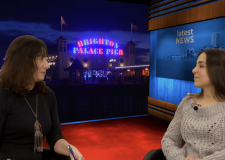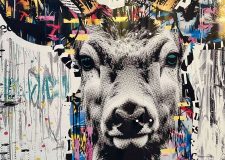Journalist follows drugs trail from Brighton to Mexico
A journalist who first came across drugs in Brighton and the surrounding area has written a book about the multibillion-pound trade.
Ioan Grillo, 38, has been based in Mexico for a decade and has written a book called El Narco.
Excerpts are being read on the BBC Radio 4 programme Book of the Week, starting this morning (Monday 16 January).
El Narco is, according to the book, the term that describes not just drug trafficking but also a way of life.
Mr Grillo’s book explores the history of Mexico’s drug-fuelled criminal insurgency, saying how in the past five years it had led to the murder of more than 40,000 people.
This morning’s excerpt spelt out how Mr Grillo first encountered drugs and his personal motives for finding out more.
He wrote: “My personal contact with the drug trade back on the green pastures of South East England. I grew up near the seaside city of Brighton.
 “When I was a teenager in the 1980s drugs flooded into the area like a tidal wave. The popular drugs were Moroccan hash-hish, known as rocky, Turkish heroin, known as smack, and later Dutch ecstasy, known as Es.
“When I was a teenager in the 1980s drugs flooded into the area like a tidal wave. The popular drugs were Moroccan hash-hish, known as rocky, Turkish heroin, known as smack, and later Dutch ecstasy, known as Es.
“Students or dropouts from my school could be found getting high, low or on one all over the place from public gardens to public toilets.
“No one gave a moment’s thought to the far-off lands that the mindbending substances came from or what the drug trade gave or took away from those countries.
“As I came out of those teenage years, many who had experimented with drugs went on to get good jobs and start families.
“Some still had the odd binge, many switching to Colombian cocaine which became fashionable in the ’90s.
“Between the ages of 16 and 21 I also knew four young men who died of heroin overdoses.
“Two were brothers. One of them finished his days passed out in a public toilet. The fourth one, Paul, had stayed over at my house days before he injected the lethal dose into his bloodstream.
“Paul was a brash brawny fellow with a mop of thick black hair and meaty hands who would strike up conversations with strangers from bus stops to pubs.
“We stayed up all night as he rambled on about the girl he was seeing, his fights with his younger brother and his philosophy on class struggle.
“Then he was gone.
“I don’t personally blame the people who trafficked the heroin that caused Paul’s death. I don’t think he would either.
“But I do strive to understand the forces that led to it and search for a different world in which his death could have been avoided and he would still be chatting to strangers at bus stops today.”
The book is published by Bloomsbury.





















